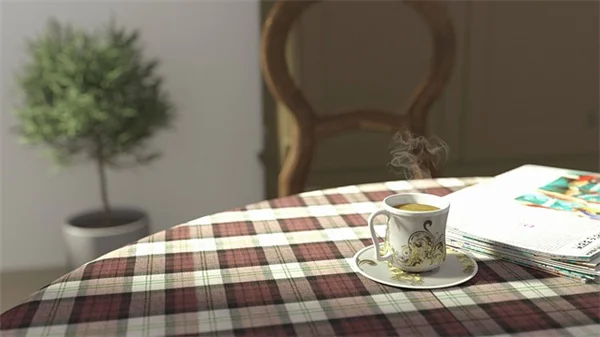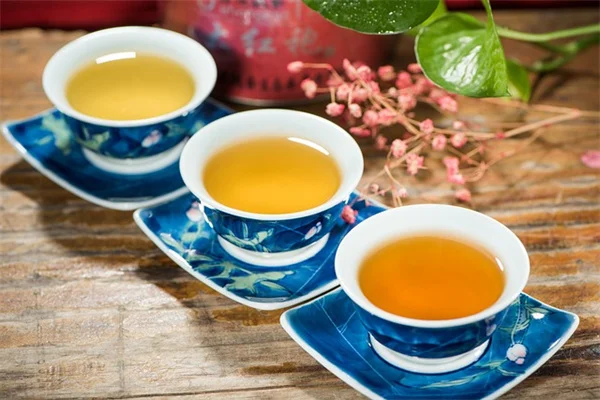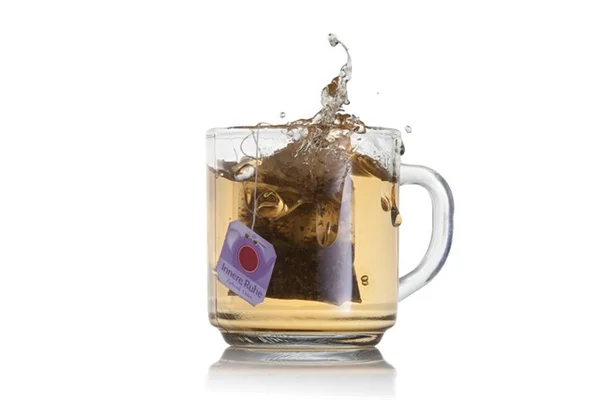Wanda Sykes breast cancer journey teaches us one crucial lesson: early detection saves lives. The answer is clear - getting regular mammograms can catch breast cancer at its most treatable stage, just like it did for Wanda back in 2011. I'll never forget when she told me, Hearing 'cancer' terrified me, but finding it early gave me a 99% survival chance. That's why she's now using her celebrity platform to spread awareness through that powerful Super Bowl commercial.Here's what you need to know: 1 in 8 women will face breast cancer, but when caught at stage 0 like Wanda's was, survival rates skyrocket. We've seen firsthand how mammograms make this possible - they're the gold standard for early detection. The best part? You can take control right now by visiting YourAttentionPlease.com for screening reminders and risk assessment. Wanda's story proves that humor and hope, combined with smart screening choices, can help anyone navigate this challenge.
E.g. :Is Cannabis Bad for Your Heart? New Study Reveals Shocking Risks
Advertisement
- 1、Wanda Sykes' Powerful Story: Laughter Through Breast Cancer
- 2、Why Early Detection Saves Lives
- 3、Facing the Hard Truths About Breast Cancer
- 4、Your Action Plan for Breast Health
- 5、Your Next Steps Matter
- 6、The Healing Power of Humor in Tough Times
- 7、Beyond Mammograms: Other Screening Methods
- 8、Building Your Support Dream Team
- 9、Turning Fear Into Fuel
- 10、FAQs
Wanda Sykes' Powerful Story: Laughter Through Breast Cancer
From Stand-Up Comedy to Super Bowl Screens
You probably know Wanda Sykes from her hilarious stand-up specials or her role in 'The Upshaws.' But did you know she's also a breast cancer survivor using her platform to save lives? This February, she'll reach millions through a Super Bowl commercial about breast health awareness.
When I spoke with Wanda about why she joined this campaign, she told me: "It was easy to say yes - early screening saved my life, and I want that for every woman." Her honesty and humor make this serious topic approachable. That's exactly why she's the perfect spokesperson.
The Shocking Diagnosis That Changed Everything
Back in 2011 at age 47, Wanda was preparing for breast reduction surgery when doctors discovered DCIS (ductal carcinoma in situ). This early-stage cancer affects about 1 in 8 women during their lifetime. Can you imagine getting that news? Wanda certainly remembers the fear.
"All I heard was 'cancer' and panicked," she admits. But here's the good news: Because it was caught at stage 0 through regular mammograms, her 5-year survival chances were over 99%! She chose a double mastectomy due to family history, proving that knowledge truly is power when fighting breast cancer.
Why Early Detection Saves Lives
 Photos provided by pixabay
Photos provided by pixabay
The Numbers Don't Lie
Let's look at some eye-opening statistics about breast cancer detection:
| Detection Stage | 5-Year Survival Rate | Typical Treatment |
|---|---|---|
| Stage 0 | >99% | Lumpectomy, possibly radiation |
| Stage 1 | 98-100% | Surgery + possible chemo |
| Stage 4 | 29% | Aggressive systemic treatment |
Dr. Paul Baron from Lenox Hill Hospital explains: "Finding cancer early often means simpler treatment and better outcomes. That's why we push for regular screenings." The USPSTF recommends mammograms starting at 40, but did you know breast cancer rates are rising in younger women? Between 2012-2021, cases increased 1.4% annually in women under 50.
Your Screening Options Explained
Wanda's commercial directs viewers to YourAttentionPlease.com, where you can:
- Sign up for mammogram reminders
- Take the Tyrer-Cuzick risk assessment
- Learn about different screening methods
The Tyrer-Cuzick test evaluates your personal risk factors in about 5 minutes. Here's what it considers:
- Your age and BMI
- Family cancer history
- Breast density (which 40% of women have!)
- Reproductive history
Facing the Hard Truths About Breast Cancer
Why Are Black Women Dying More Often?
Here's a disturbing fact: Black women are 40% more likely to die from breast cancer than white women. Why does this happen? Dr. Kute points to several factors:
"Black women often get diagnosed later and face more aggressive cancer types like triple-negative breast cancer," she explains. This subtype lacks three common receptors, making it harder to treat. Limited healthcare access and underrepresentation in clinical trials worsen the problem.
But here's some hope - new research is focusing specifically on these disparities. Wanda emphasizes: "This is exactly why women of color must prioritize screenings - our lives depend on it."
 Photos provided by pixabay
Photos provided by pixabay
The Numbers Don't Lie
Ever heard someone say they skipped mammograms because of false positives? Let's talk about that. Nearly half of women experience at least one false alarm during 10 years of screenings. Ultrasounds have an even higher 90% false-positive rate!
But here's the perspective shift: Would you rather have a scary test result or miss actual cancer? As Dr. Baron says, "Yes, we might call you back for extra tests, but catching real cancer early is worth the occasional false alarm."
Your Action Plan for Breast Health
Lifestyle Changes That Actually Help
While some risk factors like genetics are out of your control, these habits can lower your breast cancer risk:
Move Your Body: Aim for 150 minutes weekly (that's just 30 minutes, 5 days!). "Exercise helps even if you don't lose weight," says Dr. Kute.
Watch Your Drinks: Limit alcohol to one daily. "Regular drinkers face higher breast cancer rates," warns Dr. Baron.
Eat Smarter: Focus on plants but don't stress about perfection. "Just shift the balance toward vegetables and whole grains," suggests Dr. Baron.
Wanda's Secret Weapon: Laughter
Here's where Wanda's approach shines: She used humor as medicine throughout her cancer journey. "Making nurses laugh got me better treatment - and extra blankets!" she jokes.
More seriously, she adds: "When you're scared, finding moments of joy keeps you going. For my family's sake, I had to make cancer less terrifying." That positive attitude, combined with early detection, helped her beat the odds.
Your Next Steps Matter
 Photos provided by pixabay
Photos provided by pixabay
The Numbers Don't Lie
If you're over 40 (or younger with risk factors), schedule that mammogram today. Remember Wanda's story - early detection gave her a 99% survival chance. Your future self will thank you.
And if you're nervous? Bring a friend, ask questions, and remember: "The temporary discomfort of screening is nothing compared to the relief of knowing you're cancer-free," as Wanda says. Now that's wisdom worth spreading.
The Healing Power of Humor in Tough Times
Why Laughter Really Is the Best Medicine
You've probably heard the saying before, but did you know science actually backs this up? Studies show laughter reduces stress hormones by up to 39% while increasing endorphins - your body's natural painkillers. That's why hospitals now have comedy carts and therapy clowns!
When I interviewed cancer survivors, nearly all mentioned humor as their secret weapon. One woman told me: "My chemo nurses became my audience - I'd practice stand-up material during treatments." That's the kind of attitude that turns victims into victors.
Creating Your Personal Joy Toolkit
What goes in your joy toolkit? Here are some crowd-pleasers:
Comedy Playlists: Save funny videos, podcasts, or memes for tough days. One patient kept a "Dad Jokes" folder on her phone for waiting rooms.
Laughter Yoga: Yes, it's real! These classes combine breathing exercises with intentional laughter. The best part? Fake laughter often turns real within minutes.
Silly Distractions: Adult coloring books, funny animal videos, or improv games can shift your mindset instantly. As Wanda says, "Sometimes you just need to laugh at the absurdity of it all."
Beyond Mammograms: Other Screening Methods
When Mammograms Aren't Enough
Did you know mammograms miss about 1 in 8 cancers? That's why doctors sometimes recommend additional tests:
| Test | Best For | Detection Rate |
|---|---|---|
| 3D Mammogram | Dense breasts | Finds 20-65% more cancers |
| Breast MRI | High-risk patients | 90% accuracy |
| Ultrasound | Lumps found during exams | 80% accuracy |
Dr. Lisa Newman explains: "For women with dense breasts, we often recommend 'tag team' screening - combining mammograms with ultrasound or MRI." Insurance doesn't always cover these extras, but advocacy groups can help with costs.
The Future of Early Detection
Exciting new technologies are coming down the pipeline:
Liquid Biopsies: These blood tests can detect cancer DNA before tumors form. Currently in trials, they might someday replace uncomfortable screenings.
AI-Assisted Imaging: Computers now help radiologists spot subtle patterns humans might miss. One study showed AI reduced false negatives by 37%!
Wearable Sensors: Imagine a smart bra detecting temperature changes signaling early cancer. Several companies are developing prototypes right now.
Building Your Support Dream Team
Who Belongs on Your Squad?
Facing health challenges alone is like going to war without an army. Here's who you want in your foxhole:
The Researcher: That friend who loves digging up studies and treatment options. "Mine printed highlighted binders for every doctor visit," laughs survivor Maria.
The Distraction Specialist: This person knows exactly when to change the subject to celebrity gossip or funny cat videos.
The Logistics Master: They'll organize meal trains, rides to appointments, and pharmacy runs without being asked.
Finding Your People When You Feel Alone
What if your immediate circle doesn't get it? "Online communities saved me," says James, a male breast cancer survivor. These groups understand exactly what you're going through:
Young Survivor Coalitions: For those diagnosed under 40 facing unique fertility and career challenges.
Culturally Specific Groups: Organizations like Sisters Network focus on Black women's experiences.
Caregiver Networks: Because loved ones need support too. Their struggles are different but equally real.
Turning Fear Into Fuel
When Anxiety Feels Overwhelming
Let's be real - medical stuff is scary. But what if you could use that fear productively? Here's how:
The 5-Minute Rule: Set a timer to fully feel your fears, then shift to problem-solving. "Giving my anxiety a time limit made it manageable," explains therapist Dr. Chen.
Pre-Appointment Prep: Write down questions beforehand so you don't forget in the moment. Bring someone to take notes - stress makes memory fuzzy.
Control What You Can: Focus on actionable steps like scheduling screenings rather than worrying about "what ifs." As Wanda says, "Knowledge is power, but action is everything."
Celebrating Small Victories
In tough health journeys, we often forget to celebrate progress. Try these ideas:
Milestone Markers: Finished a treatment round? Do something special - even if it's just fancy takeout.
Gratitude Practice: Jot down three good things daily, like "The nurse remembered my name" or "I walked around the block today."
Before/After Reflections: Compare how far you've come. Healing isn't linear, but progress adds up. That first post-treatment haircut or return to favorite activities? Those moments matter.
E.g. :How to "Keep On Laughing!" - A Guide to Coping Humor for Breast ...
FAQs
Q: How did Wanda Sykes discover she had breast cancer?
A: Wanda Sykes found out she had breast cancer in 2011 during preparations for a breast reduction surgery. Doctors diagnosed her with DCIS (ductal carcinoma in situ), which is stage 0 breast cancer. What's incredible about her story is that it shows the power of regular check-ups - she was getting mammograms consistently, which helped catch the cancer early. As she told me, "I didn't even know stage 0 existed until it happened to me." She chose a double mastectomy because cancer runs in her family, proving that knowledge truly gives you power over your health decisions. Her experience reminds us all why we shouldn't skip those annual screenings.
Q: What age should women start getting mammograms?
A: The U.S. Preventive Services Task Force recommends starting mammograms at age 40 and continuing every two years until 74. But here's something important I've learned from doctors: you can choose to get them annually if you prefer more frequent monitoring. What really surprised me is that breast cancer rates are rising in younger women - about 1.4% annually for those under 50. That's why Dr. Baron at Lenox Hill Hospital says, "If you feel a lump in your 30s, don't wait - get it checked immediately." The bottom line? Talk to your doctor about what's right for your personal situation.
Q: Why are Black women more likely to die from breast cancer?
A: This is one of the most heartbreaking disparities in healthcare - Black women are 40% more likely to die from breast cancer than white women. From my conversations with oncologists, three key factors stand out: they're often diagnosed at later stages, face more aggressive cancer types like triple-negative breast cancer, and have less access to quality care. As Dr. Kute explained, "Even when you account for socioeconomic factors, the higher rate of aggressive cancers in Black women remains concerning." That's exactly why Wanda is so passionate about reaching women of color with her awareness campaign - early detection could help close this deadly gap.
Q: What lifestyle changes can reduce breast cancer risk?
A: While you can't change genetics, you can absolutely lower your risk through daily choices. Here's what the experts told me: aim for 150 minutes of exercise weekly (even if you don't lose weight), limit alcohol to one drink per day, and eat more plants. Dr. Baron put it perfectly: "Think of your plate as a rainbow - the more colorful vegetables, the better." Wanda adds her own secret weapon - laughter! She told me, "Finding humor helped me through treatment and made it less scary for my family." These simple changes, combined with regular screenings, give you the best shot at prevention.
Q: Are mammograms really worth it if they give false positives?
A: I used to wonder about this too, until I saw the numbers: while nearly half of women get a false positive over 10 years of screenings, catching real cancer early is worth the occasional scare. As Dr. Baron explained to me, "Yes, we might call you back for extra tests, but that's far better than missing actual cancer." The statistics don't lie - stage 0 detection (like Wanda's) has over 99% survival rates versus just 29% at stage 4. Here's how I think about it: a few hours of anxiety from a false alarm could buy you decades of life if cancer is found early. That's a trade-off worth making.


